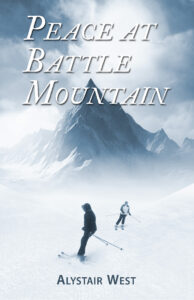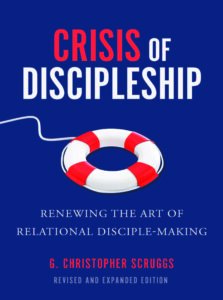Like many Americans, I have many fond memories of Thanksgiving. These memories stretch from warmer California holidays when my own grandparents and great-grandparents were still alive to colder Springfield, Missouri, punctuated by an occasional snowball fight in the early snow, to almost hot Houston Thanksgivings with our own family and the parents and now grandparents, to the current Thanksgivings with our children and grandchildren.
For most of my life the day involved a late breakfast, a very large lunch with Turkey and dressing, and a late evening snack of turkey sandwiches or soup made from the leftovers. Much of the time there was a football game watched by my Kathy’s or my father. On one memorable occasion, Kathy had the children do a complete Thanksgiving pageant, with each child playing some part from the partially legendary first Thanksgiving.
Since I began these blogs, it has been my custom to write a shorter Thanksgiving-themed entry for the week, usually focused on some particular incident of Thanksgiving history. Texans might want to know that a Thanksgiving Day may have been held as early as 1598 in El Paso, Texas! A similar early Thanksgiving was held in 1619 in the Virginia Colony. The history of modern Thanksgiving Day often highlights a harvest celebration of the Pilgrims, which was held in 1621 in Plymouth, Massachusetts. As recorded in this blog, the first actual Pilgrim Thanksgiving was in 1623, when they gave thanks for rain that ended a drought. These early thanksgivings usually involved a special church service rather than a feast. In my childhood, we often attended a early Church service on Thanksgiving Day.
 William Bradford described the early Plymouth Thanksgiving feast in Of Plymouth Plantation:
William Bradford described the early Plymouth Thanksgiving feast in Of Plymouth Plantation:
They began now to gather in the small harvest they had, and to fit up their houses and dwellings against winter, being all well recovered in health and strength and had all things in good plenty. For as some were thus employed in affairs abroad, others were exercised in fishing, about cod and bass and other fish, of which they took good store, of which every family had their portion. All the summer there was no want; and now began to come in store of fowl, as winter approached, of which this place did abound when they can be used (but afterward decreased by degrees). And besides waterfowl, there was a great store of wild turkeys, of which they took many, besides venison, etc. Besides, they had about a peck a meal a week to a person, or now since harvest, Indian corn to the proportion. Which made many afterward write so largely of their plenty here to their friends in England, which were not feigned but true reports. [1]
For nearly five years, our family lived in a small Tennessee farming town, Brownsville. In Brownsville, Thanksgiving was always special because by then the harvest would normally be nearly done. There was a special festive feeling in the air as the final cotton trailers came into town with their loads of the primary crop. Early America was a farming nation, and after the first Thanksgivings additional harvest thanksgivings became common annual events. However, they were celebrated on different days in different local communities. In 1789, after the American revolution, George Washington, the first president of the United States, proclaimed the first national Thanksgiving Day.
 Our periodic wars have also occasioned Thanksgiving proclamations. Our current national holiday dates to the Civil War; when in 1863, after victories at Gettysburg in the east and Vicksburg in the West, Abraham Lincoln declared a holiday in thanks for the blessings of the past year with the following proclamation:
Our periodic wars have also occasioned Thanksgiving proclamations. Our current national holiday dates to the Civil War; when in 1863, after victories at Gettysburg in the east and Vicksburg in the West, Abraham Lincoln declared a holiday in thanks for the blessings of the past year with the following proclamation:
The year that is drawing towards its close has been filled with the blessings of fruitful fields and healthful skies. To these bounties, which are so constantly enjoyed that we are prone to forget the source from which they come, others have been added, which are of so extraordinary nature, that they cannot fail to penetrate and soften even the heart which is habitually insensible to the ever-watchful providence of Almighty God. In the midst of a civil war of unequaled magnitude and severity, which has sometimes seemed to foreign States to invite and to provoke their aggression, peace has been preserved with all nations, the order has been maintained, the laws have been respected and obeyed, and harmony has prevailed everywhere except in the theatre of military conflict; while that theatre has been greatly contracted by the advancing armies and navies of the Union. Needful diversions of wealth and of strength from the fields of peaceful industry to the national defense have not arrested the plow, the shuttle, or the ship; the ax had enlarged the borders of our settlements, and the mines, as well of iron and coal as of the precious metals, have yielded even more abundantly than heretofore. The population has steadily increased, notwithstanding the waste that has been made in the camp, the siege, and the battle-field; and the country, rejoicing in the consciousness of augmented strength and vigor, is permitted to expect continuance of years, with large increase of freedom.
No human counsel hath devised nor hath any mortal hand worked out these great things. They are the gracious gifts of the Highest God, who, while dealing with us in anger for our sins, hath nevertheless remembered mercy.
It has seemed to me fit and proper that they should be solemnly, reverently and gratefully acknowledged as with one heart and voice by the whole American people. I do therefore invite my fellow-citizens in every part of the United States, and also those who are at sea and those who are sojourning in foreign lands, to set apart and observe the last Thursday of November next, as a day of Thanksgiving and Praise to our beneficent Father who dwelleth in the Heavens. And I recommend to them that while offering up the ascriptions justly due to Him for such singular deliverances and blessings, they do also, with humble penitence for our national perverseness and disobedience, commend to his tender care all those who have become widows, orphans, mourners or sufferers in the lamentable civil strife in which we are unavoidably engaged, and fervently implore the interposition of the Almighty Hand to heal the wounds of the nation and to restore it as soon as may be consistent with the Divine purposes to the full enjoyment of peace, harmony, tranquility and Union.
In all these holidays, there was a feature often missing from our current holiday of food, football, and family: actual time spent thanking God for the blessings of life that we do not necessarily deserve. If we are honest, we don’t deserve the freedoms, the affluence, and the blessings of life we now possess. They are gifts—and like all gifts, it is only appropriate to thank the giver. The Psalmist put it this way, “Give thanks to the Lord, for he is good, for his steadfast love endures for ever” (Psalm 136:1).
Happy Thanksgiving!
Chris
[1] William Bradford, History of Plymouth Plantation (Carlisle MA: Applewood Books, 1898)




